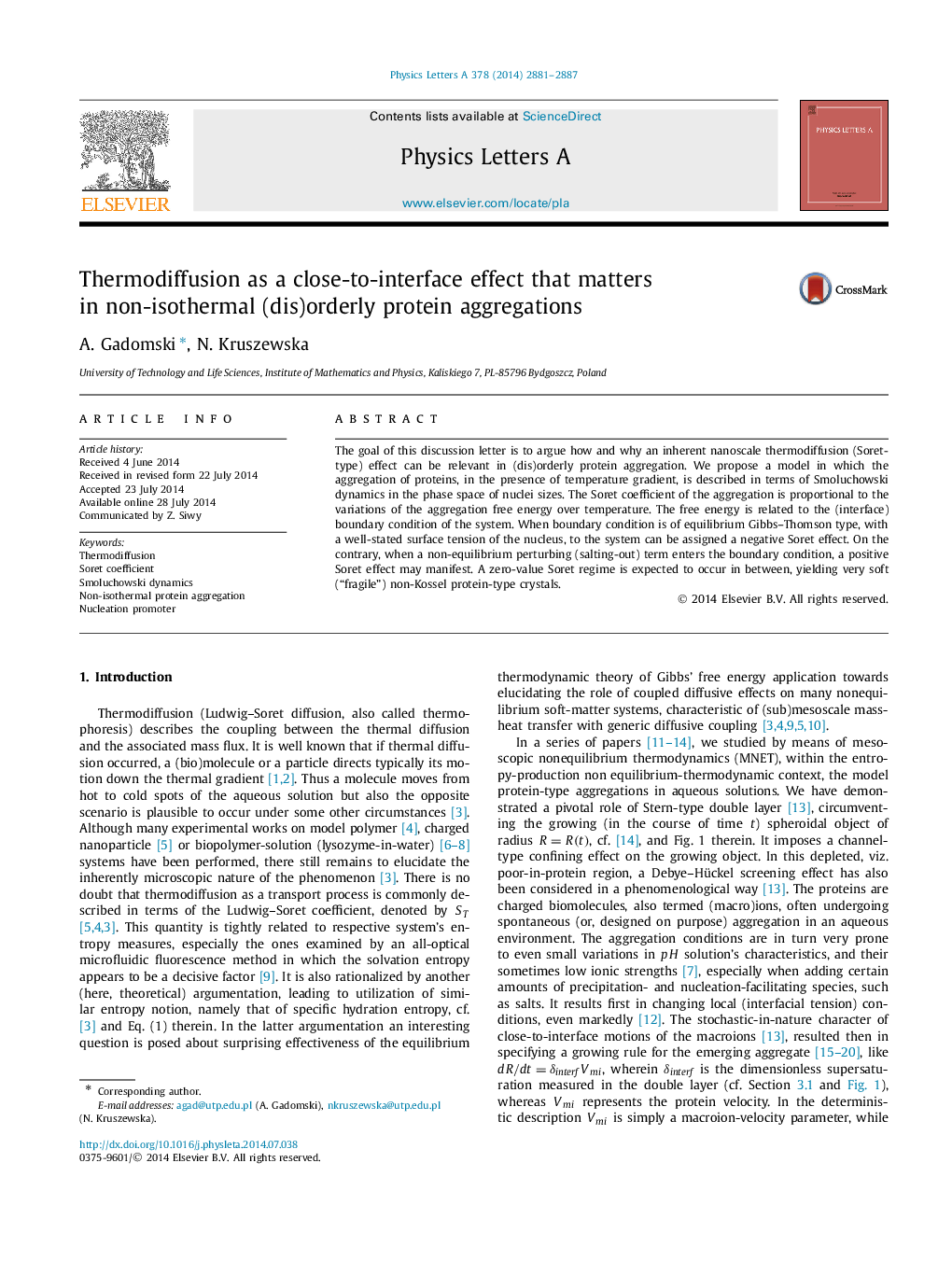| Article ID | Journal | Published Year | Pages | File Type |
|---|---|---|---|---|
| 8204908 | Physics Letters A | 2014 | 7 Pages |
Abstract
The goal of this discussion letter is to argue how and why an inherent nanoscale thermodiffusion (Soret-type) effect can be relevant in (dis)orderly protein aggregation. We propose a model in which the aggregation of proteins, in the presence of temperature gradient, is described in terms of Smoluchowski dynamics in the phase space of nuclei sizes. The Soret coefficient of the aggregation is proportional to the variations of the aggregation free energy over temperature. The free energy is related to the (interface) boundary condition of the system. When boundary condition is of equilibrium Gibbs-Thomson type, with a well-stated surface tension of the nucleus, to the system can be assigned a negative Soret effect. On the contrary, when a non-equilibrium perturbing (salting-out) term enters the boundary condition, a positive Soret effect may manifest. A zero-value Soret regime is expected to occur in between, yielding very soft (“fragile”) non-Kossel protein-type crystals.
Keywords
Related Topics
Physical Sciences and Engineering
Physics and Astronomy
Physics and Astronomy (General)
Authors
A. Gadomski, N. Kruszewska,
